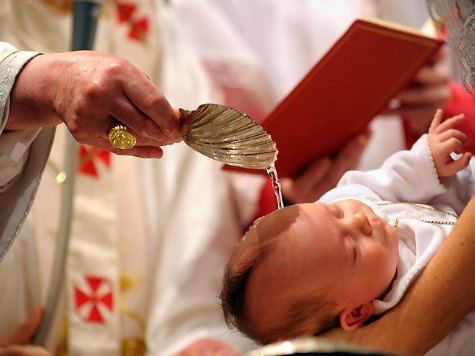
Writing in the liberal Jesuit outlet America Magazine, Auxiliary Bishop of San Francisco Robert McElroy claims that the Church in the United States “must elevate the issue of poverty to the very top of its political agenda, establishing poverty alongside abortion as the pre-eminent moral issues the Catholic community pursues at this moment in our nation’s history.”
Taking his cue from Pope Francis, whom he says has “unswervingly pointed to the scandal of poverty in a world of plenty as a piercing moral challenge for the church and the whole human community,” McElroy writes that the pontiff’s “teachings on the rights of the poor have enormous implications for the culture and politics of the United States and for the church in this country.”
McElroy argues that “both abortion and poverty countenance the deaths of millions of children in a world where government action could end the slaughter.” He asks why, if the sanctity of the unborn human life is a doctrinal issue of the Church and, therefore, requires faithful Catholics to defend it in the public square, Catholics do not feel equally compelled to demand that their government fund social justice programs in the United States and abroad.
Regarding the issue of abortion, however, in 2005, writing again at America Magazine, McElroy decided that Catholic public officials who endorse the legalization of abortion should not be denied communion:
The primary benefit of imposing eucharistic sanctions is that they will point to the absolute central position abortion occupies in the church’s quest for justice in the social order in America today. Sanctions will function as a moral call to arms, by which individual Catholics will be forced to choose whether they value more their Catholic faith or the political/philosophical commitments that tie them to political action supporting abortion. The denial of the Eucharist will say in a unique manner that the church cannot continue to be a house divided any longer, half pro-life and half pro-choice.
McElroy provided the following reasons why political leaders who support abortion legislation should not be denied communion: 1) It would be perceived as coercive; 2) It would identify abortion as a specifically Catholic issue and play into the hands of those who accuse the pro-life movement of imposing religious tenets upon Americans; 3) It would make it appear that abortion defines the church’s social agenda; 4) It will “cast the church as a partisan actor in the American political system.”
However, regarding “poverty,” McElroy writes in his current piece:
Choices by citizens or public officials that systematically, and therefore unjustly, decrease governmental financial support for the poor clearly reject core Catholic teachings on poverty and economic justice. Policy decisions that reduce development assistance to the poorest countries reject core Catholic teachings. Tax policies that increase rather than decrease inequalities reject core Catholic teachings.
McElroy firmly concludes that “the categorical nature of Catholic teaching on economic justice is clear and binding.”

COMMENTS
Please let us know if you're having issues with commenting.